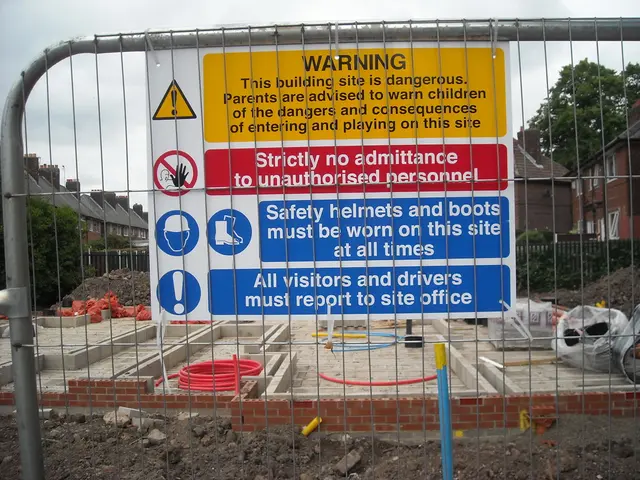Economic Disparity and Its Effect on Social Classes
In today's world, promoting a more equitable society has become a pressing concern. Policymakers, researchers, and global organizations are working tirelessly to address social stratification and economic inequality, ensuring that economic growth benefits a broad spectrum of society.
Addressing economic inequality is not just a moral imperative but an economic necessity. High levels of inequality can undermine social cohesion, limit social mobility, and curtail sustainable economic growth. Contemporary strategies for addressing social stratification and economic inequality focus on both policy-driven and systemic approaches.
Key strategies include strengthening social protection systems and poverty eradication measures. Governments and international organizations work to implement social safety nets, such as cash transfers, unemployment benefits, and targeted support to vulnerable populations, to reduce extreme poverty and economic vulnerability by 2030, as set by the United Nations.
Another crucial aspect is ensuring equal access to economic resources and services. This involves giving marginalized groups equal rights to land, property, technology, basic services, and financial services like microfinance to foster economic inclusion.
Addressing social determinants of health is also fundamental. Tackling inequities in living conditions, access to healthcare, education, and working environments is key to reducing broader social inequalities. This includes reallocating power, money, and resources to address structural drivers behind disparities.
Policy and governance reforms are also essential. Creating pro-poor, gender-sensitive policy frameworks at national and international levels that support accelerated investments in poverty eradication and inclusive economic growth is crucial.
Recognition of power structures is another important element. Sociological research highlights the importance of understanding and challenging concentrated power elites who influence economic and political agendas, as this affects class stratification and inequality.
Universal but proportionate interventions acknowledge the social gradient of disadvantage, with scaled-up actions targeted to reach those most in need to effectively reduce inequality and promote healthier populations.
The journey towards a more equitable society requires strategic policies focused on education, taxation, and social welfare, coupled with cultural shifts. Strengthening social safety nets, such as unemployment benefits, healthcare, and housing assistance, can alleviate the immediate impacts of poverty and provide pathways to upward mobility.
Ensuring equal access to quality education through programs like early childhood education, increased funding for public schools, and scholarships for higher education can help bridge the gap between social classes. Fostering an inclusive culture that values diversity and champions social justice can help shift societal attitudes and reduce stigmatization of lower social classes.
Social class significantly impacts an individual's life trajectory, influencing access to quality education, healthcare, job opportunities, and social networks. Understanding social stratification helps grasp how societies function and how different social groups interact with each other.
The lower class, or working class, comprises individuals who struggle with low-income jobs, unemployment, and limited access to education and healthcare, facing numerous barriers, including discrimination, that perpetuate the cycle of poverty. On the other hand, upper-class individuals tend to have better educational outcomes and health prospects due to their financial stability, which provides access to prestigious schools, advanced healthcare facilities, and enrichment activities.
The middle class, which includes professionals, skilled workers, and small business owners, benefits from economic opportunities and education but remains vulnerable to economic shocks. Social class shapes personal identity and self-perception, influencing an individual's values, aspirations, and interactions with others.
Economic inequality refers to the disparate distribution of wealth and income within a population and persists in both developed and developing countries. Conflict theory emphasizes the role of power and coercion in producing social order, arguing that social stratification results from ongoing conflicts between the 'haves' and 'have-nots.'
Symbolic interactionism looks at stratification from the micro-level, focusing on daily interactions and the meanings individuals attach to various social classes. Functionalist perspectives view stratification as a necessary mechanism that benefits society by ensuring that the most qualified individuals fill important roles.
In conclusion, addressing social stratification and economic inequality requires a multi-faceted approach that integrates economic, social, and health policies aiming for systemic transformations to reduce stratification, with a focus on sustainability and equity aligned with global development goals.
The government plays a crucial role in addressing economic inequality by implementing strategic policies focusing on social protection systems, education, and economic resources. This includes strengthening social safety nets, ensuring equal access to quality education, and reallocating power, money, and resources to address disparities.
Promoting a more equitable society is not only about economic growth but also about self-development and education. By addressing social determinants of health, such as living conditions and access to education, societies can help reduce broader social inequalities, fostering a more inclusive and just society.




